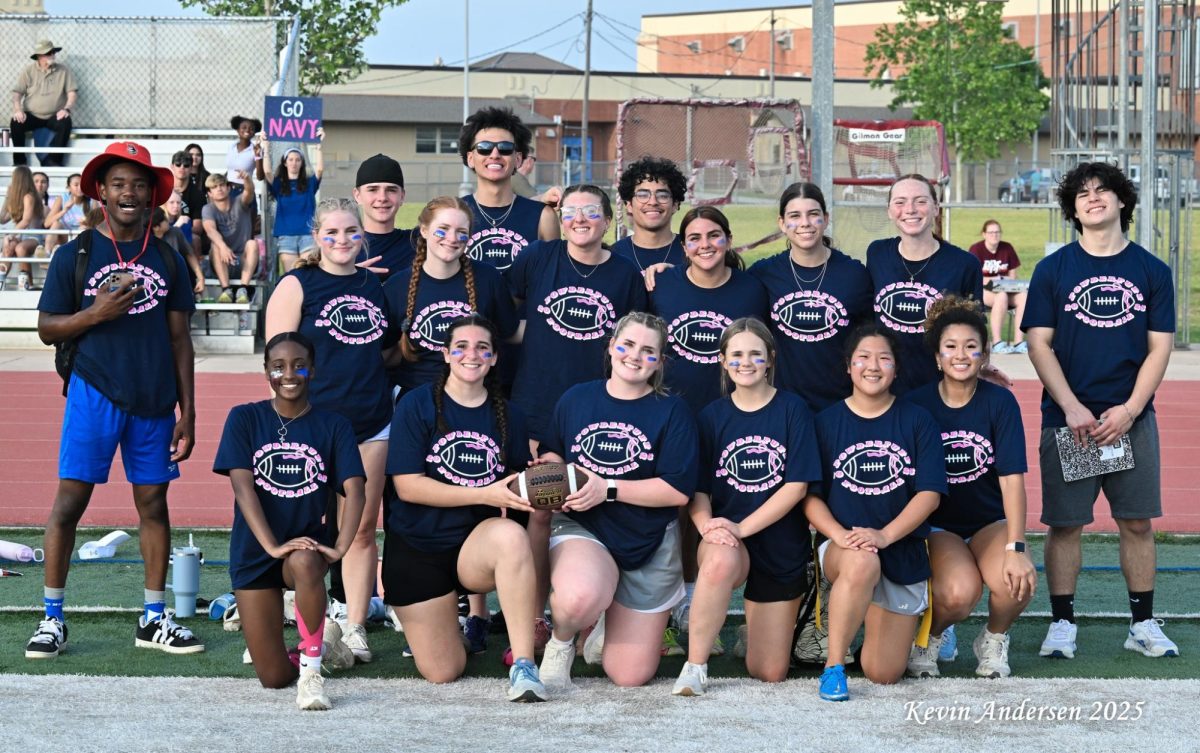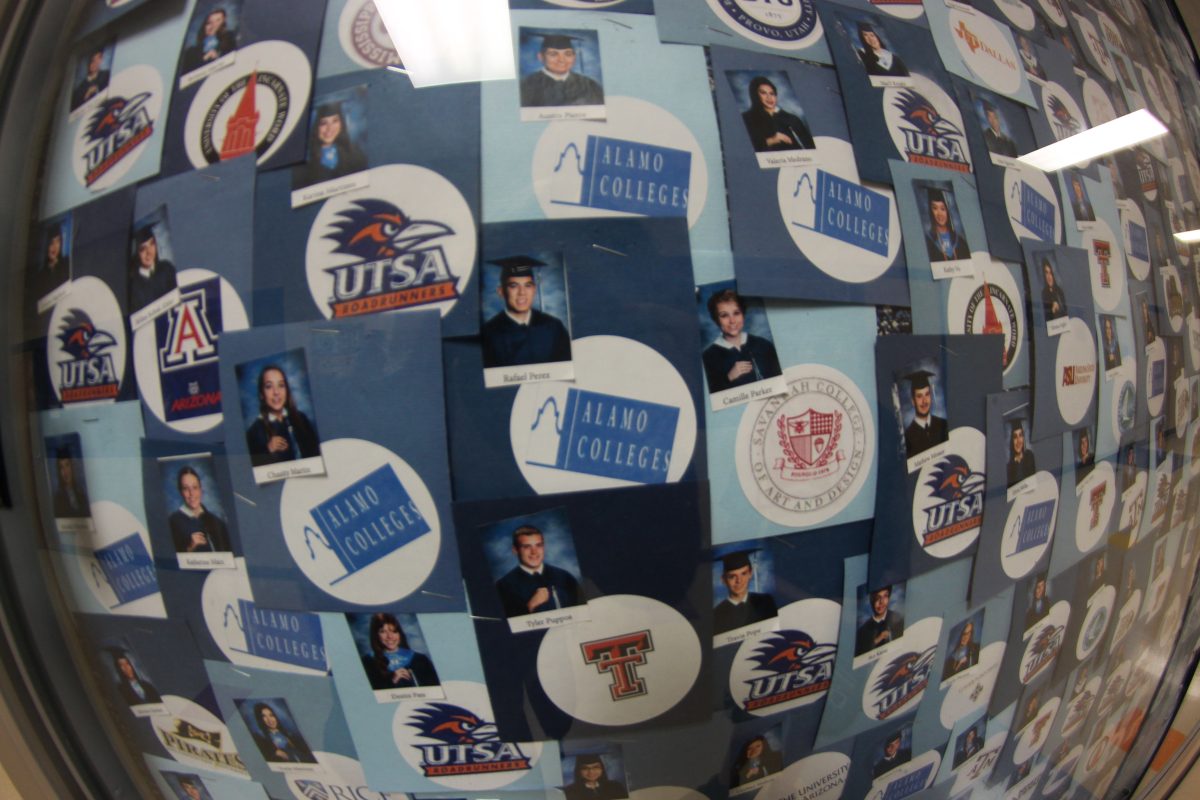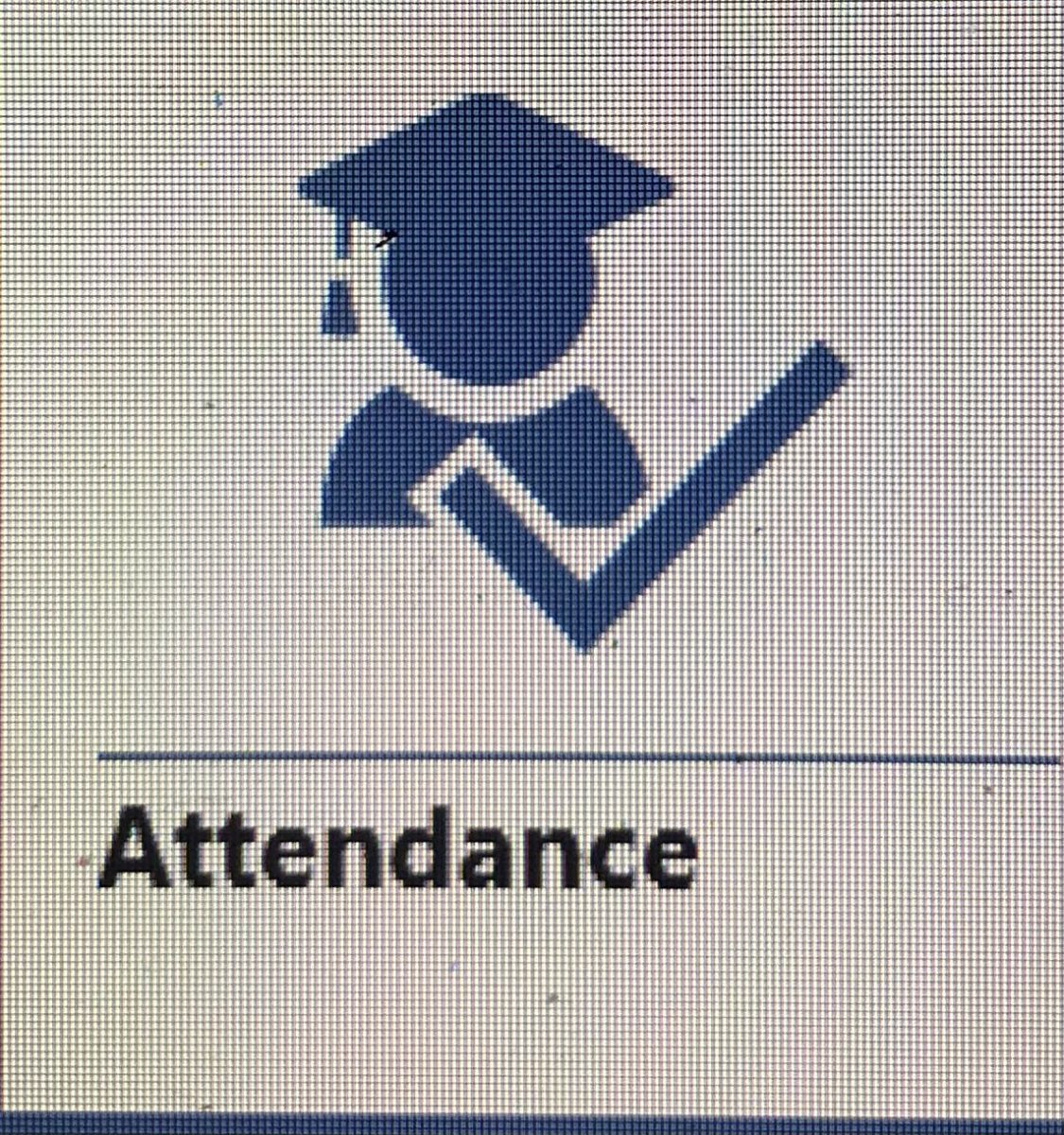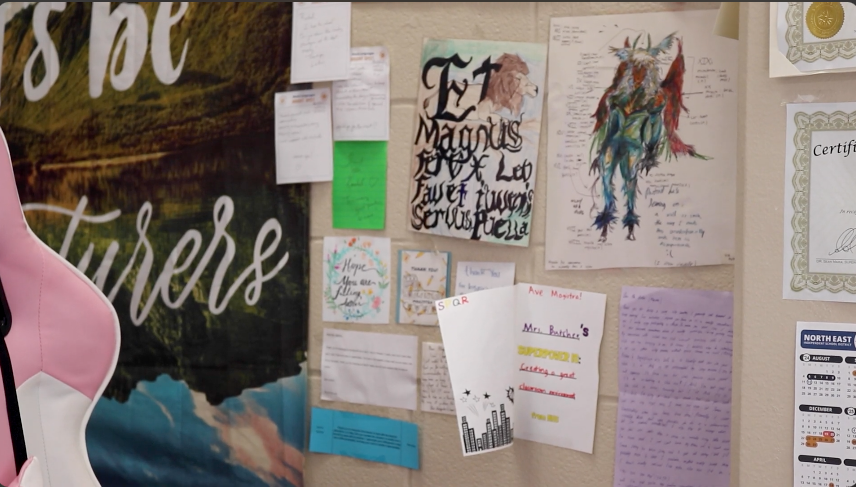By Brooke Nowakowski | Co-Editor-in-Chief
The winter season holds almost exclusive sway over countdowns. Whether to the bright, childlike excitement of Christmas or the glitz of a falling silver ball in Times Square, students are well-acquainted with the sensation of a held breath and a fleeting hope as a special occasion makes its steady approach. But for the seniors of 2012, that feeling has a new connotation: college.
“I sent in my application on November 1,” senior Andy Kostrzewa says. He stands in an empty corner of the athletic wing, winding down from a workout. “It was at the deadline.”
Kostrzewa, like many other seniors, is waiting for word from his first-choice college. In his case, that school is Stanford.
“I just want to get out of Texas,” he said. “It’s a new place; I’ll be able to start a new life.”
Senior Sam Kappel, another early applicant, has a similar desire in naming an out-of-state school as her first choice.
“Florida State,” she grins, pausing from a physics equation. “It’s awesome, and it’s kind of close to the beach. It’s in Tallahassee, but I’d probably be living in student housing; dorms.”
Her smile widens.
“I could eat ramen noodles all the time, make them in my coffee machine.”
However, until the fated day arrives, the early applicants find themselves in limbo; neither accepted nor rejected. It’s not an enviable state of affairs.
“I just want it to be the 15th already, because after the 15th, I’ll be content,” Kappel said. “Or not. But at least I’ll know.”
“I just try to focus on not worrying about it,” Kostrzewa said. “If I think about it too much, I’ll go crazy.”
In any case, he feels that the benefits of an early application outweigh the stress involved.
“I applied earlier because there’s a higher-percentage chance that I’ll get in. They accept more people early on,” he said.
An early application means more than an early notification. These students have been immersed in paperwork and essays that most American students would associate with the late winter since early fall.
“College applications are more difficult than I expected them to be,” Kappel said. “I mean, I hear about all the people that got into college, and I’m like ‘Wow, I’m surprised that you did that’. But I guess the motivation is that you get to move out. So, you do it.”
For many students, college is as representative of independence as of a continued education. Kappel is no exception.
“I’m excited for not having to listen to my parents; a general lack of rules and authority,” she said. “There’s not going to be anything to replace them; they’re just going to be going away.”
As a student with an acceptance in hand, senior Breana Waddill has become increasingly familiar with the feelings of departure that come when one has committed to a college.
“I’m very relieved, because I don’t have to think about it anymore, and it was a pain to think everyday about college, college, college,” she said. “I’m not very excitable. I just found out; ‘oh, I got accepted!’. There was a little burst of excitement, then, I was fine.”
Waddill recalls her waiting process for Texas State University as one of relative ease; though she sympathizes with those who have a more stressful experience.
“For them, while everyone else is finding out what college they’re getting into, you’re waiting. It’s kind of more suspenseful, but more awesome what you do find out.”
Nonetheless, her experience remained, in a word, ‘fantastic’.
“But it only makes me more irritable, because I have to wait before I can run around and be an adult!” she laughs. “I’m not afraid of anything. I’m ready to go; my parents are ready for me to go, and I’m ready to be independent and try things my own way.”
However, the concerns that come with that freedom are also palpable.
“Money, for one thing,” Kappel says of her anticipated concerns. “College is expensive. And if my car breaks down, I have to fix it. I can’t call my dad for help- he won’t be there.”
“I think going to college away from home really allows you to find yourself, instead of listening to how others want you to live,” Kostrzewa said. “[My parents] were supportive. They made it clear that it was going to be hard financially, so I’ll have to get some scholarships if I want to go there.”
Finding funding is a concern for many, but one that Kostrzewa hopes to avert. As a potential math or science major, he is seeking out state funding.
“I’m working on Texas engineering scholarships. I like it, because I’ll be able to create things and really utilize math and science,” he said.
These opportunities serve a double purpose- both aiding and distracting the would-be applicant.
“I’ve been working on other applications, so there is not much staring-at-the-wall time,” Kappel said.
However, she does find that having an application out leads to a change in perspective.
“It makes me care less. A lot less. I used to care a lot about my grades; now, my goal is to pass my classes, and to try to get to class each day,” Kappel said.
For now, she- and many others- wait, and dream of the moment; how they would feel, and who they would share the good news with first.
“My parents, because my mom’s probably going to kill me if I didn’t. And after, I’d probably tell my best friend, because that’s just the general thing to do,” Kappel grinned. “I’m going to have a party.”








